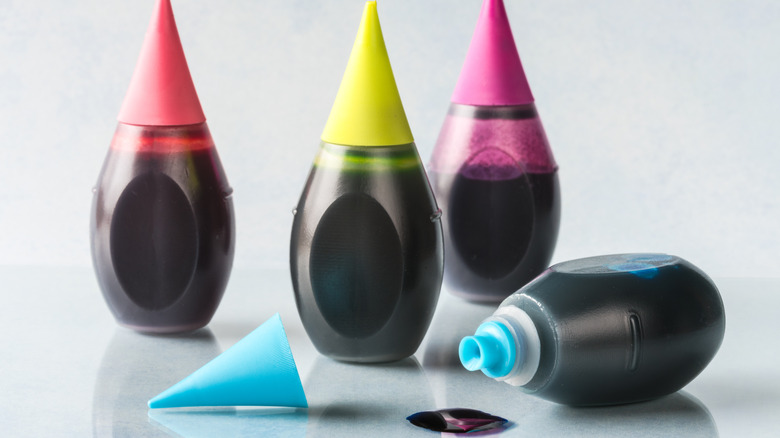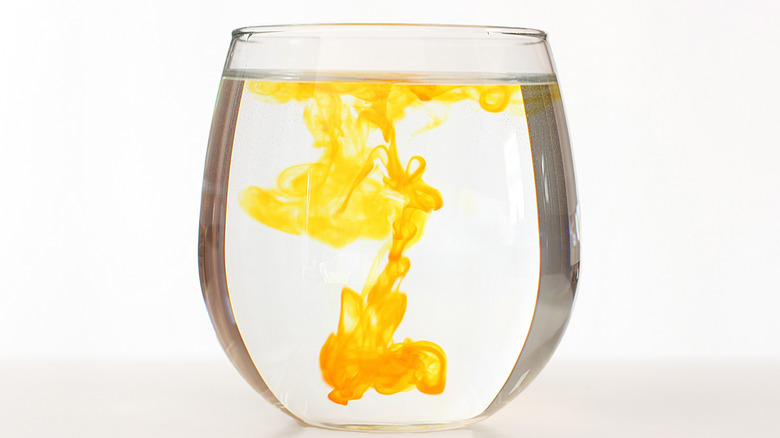What Vegans Should Know About Food Dye
When it comes to special diets, like veganism, it's important to be cautious and examine the ingredients in your food closely. According to a piece by The Spruce Eats, some products can fool people in the sense that they sound like they should be vegan but contain animal-derived ingredients. For example, gelatin, which is often used in candies, is made from animal collagen. So a vegan with a sweet tooth might know to avoid milk chocolate but not realize a candy with a glossy glaze is also off the list.
Another sneaky food item to look out for? Whey, which is often found in products like bread and protein powders. This is derived from milk. And of course, food coloring is another ingredient that vegans may have to look out for. Unfortunately, animal-based dyes aren't color-coded for easy identification. And even if they aren't derived from animals directly, other factors could rule them out. Here's what you need to know.
Animal testing can pose a problem
According to Veg Faqs, as far as natural food coloring is concerned, things are simpler because it generally comes from plants. However, the type of food coloring you'll often encounter is artificial, and this is where the problem begins. According to Healthline, every dye used to color food has been involved in some form of animal testing to make sure it's safe for human consumption.
If you see a name like Red 40 on the ingredients list for your candy or cereal or notice your canned peas contain Blue No 1, you have spotted one of the many artificial dyes that are used in foods that might otherwise sound completely vegan. Your best bet is to stay away from food items that have artificial dye if you feel strongly against animal testing. This is definitely a personal decision.
If this comes as a bit of a surprise, you wouldn't be the first person who was caught off guard. A Reddit who reflected on the food dye issue expressed their surprise: "To my knowledge, I just thought this was a chemical. So I did a little googling. Turns out Yellow-5 and other various coloring agents like that are in fact tested on animals." Another user suggested that the only way around the uncertainty is to make all your food from scratch. Maybe they have a point. Sigh.

